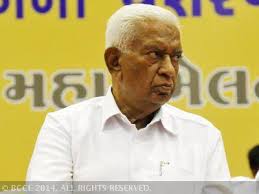Bengaluru, Jan 5: The filling up of vacant posts in the Karnataka Public Service Commission (KPSC) may have to wait. Governor Vajubhai R Vala is yet to give his nod on the list of names suggested by the state government.
Acting on complaints by various organizations, including the state BJP, that persons recommended by the government are politically affiliated and embroiled in other controversies, the governor on Saturday sought more details from chief secretary Kaushik Mukherjee. The chief secretary's office confirmed it had replied to Raj Bhavan and also intimated chief minister Siddaramaiah about the developments.
Siddaramaiah had recommended V R Sudarshan, a former MLC, for the post of KPSC chairman. The names of IPS officer Syed Ulfat Hussain, activist Prof Govindaiah, Channapatna politician Ragunandan Ramanna, CM's personal physician M Ravikumar, academician Nagabhai Bulla and forest department officer Michael Simon were proposed as KPSC members.
To take legal advice: As on January 2, the state BJP unit petitioned Vala not to consider the names.
The governor is expected to take legal advice before clearing or rejecting the file.
This controversy comes in the wake of allegations of corruption a nd favouritism hitting the K PSC over selection of candidates to various government services.
The Bharatiya Janata Party has been opposing the names, arguing that Sudarshan and Raghunandan Ramanna were active politicians, while Govindaiah, Ravikumar and Hussain face various charges.
Vala, in his letter, mentioned the apex court’s observation that appointing persons to constitutional positions only on the basis of political or party affiliations and without administrative experience does not go well for the state’s apex recruiting agency. He quoted the ARC report that stipulated eligibility criteria for appointing official and non-official members.
“A member selected from among government officers should have held office under a State government or the Union government for at least 10 years and should have occupied the position of a head of department or secretary to government in a State or a comparable position in an institution of higher education. Member selected from non-official category should have practised at least for 10 years in any of the recognised professions like teaching, law, medicine, engineering, science, accountancy or administration,” the letter stated.
It also refers to the advice by the governor in 2007 to submit a report of vigilance clearance for the names. “In future, it will be proper if vigilance clearance is vetted by the Lokayukta, too,” said the letter.





Comments
Add new comment